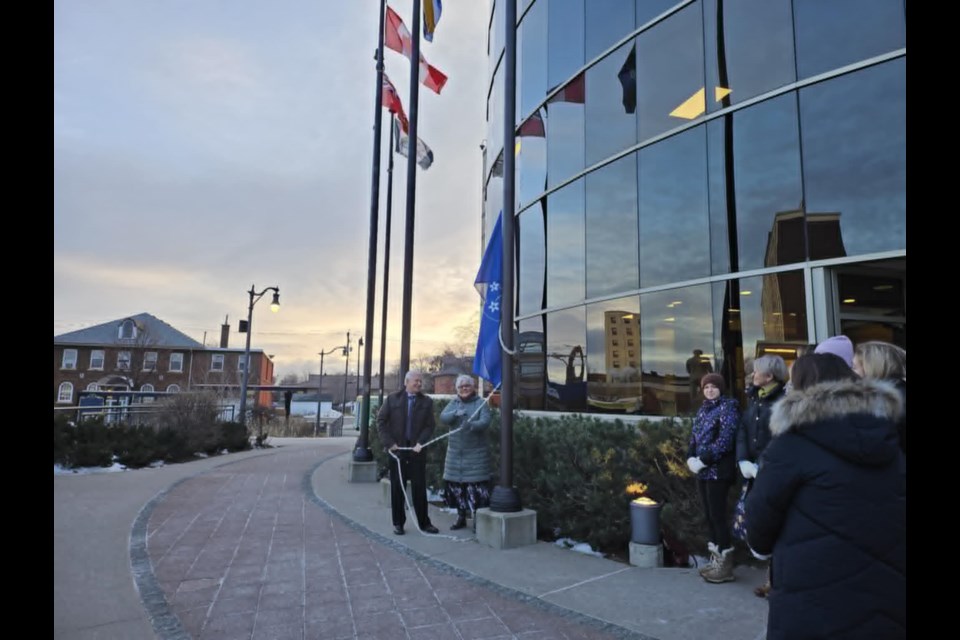THUNDER BAY — The Alzheimer Society of Thunder Bay raised its flag on Thursday at city hall, encouraging people to learn about dementia and its impact on our community.
January is Alzheimer Awareness Month in Canada, and there are 26 Alzheimer Society chapters across Ontario raising awareness about Alzheimer’s and other related illnesses.
Sharon Pitawanakwat, executive director of the Alzheimer’s Society of Thunder Bay, said January has been declared Alzheimer Awareness Month for a number of years.
“In Canada overall, there are 700,000 people who live with the disease. Every day more than 350 people develop a form of dementia, that's about 15 people every day. It's a very large percentage of individuals in Ontario," she said.
“We're expecting a 202 per cent increase by 2050. It's not going away anytime soon and the more that we can rally together as a community and create prevention, awareness, early intervention and support . . . to navigate our health care system, the better equipped we will be to support individuals when 2050 arises,” she said.
Pitawanakwat said Alzheimer's and dementia-related illnesses carry a considerable amount of stigma and fear, resulting in people not reaching out for support.
“We want to, first of all, let people know we're here and that they can call us with any questions and give advice. Whether it's themselves (or) it's a loved one. That support can be offered earlier on in the in the disease process," she said. “The other thing is, there are many things that we can do preventative-wise to improve or reduce the incidence of dementia-related illnesses. Part of our mandate and role is to do a lot of public awareness and education around what can we do to slow down the progression of some of these numbers."
“In Thunder Bay in particular, our level of disease and overall state of health is lower than some other parts of the province. We do have determinants of health that are predictors that we will likely see greater incidences in this region. We want people to know that it's not something to wait for, it's something that we can act on now,” she added.
Thunder Bay’s Alzheimer Society has a very small team of seven employees.
“Our primary service is called First Link and we have First Link Navigators, who work with family members and individuals who are first diagnosed with their illness, who need support," Pitawanakwat said. “We work with our partners to support these individuals navigating the complex health care system from the point of diagnosis until time of death and in any junction points along the way. We're here to walk with the client and their family.
“As you can imagine, it affects a whole family so we want to make sure that they have somewhere to go to speak with someone who understands. That's the main core of our services, and the other part that we do is raise awareness, like today, and other activities that we do in the community, across the region."
For more information visit the Alzheimer Society’s website.
